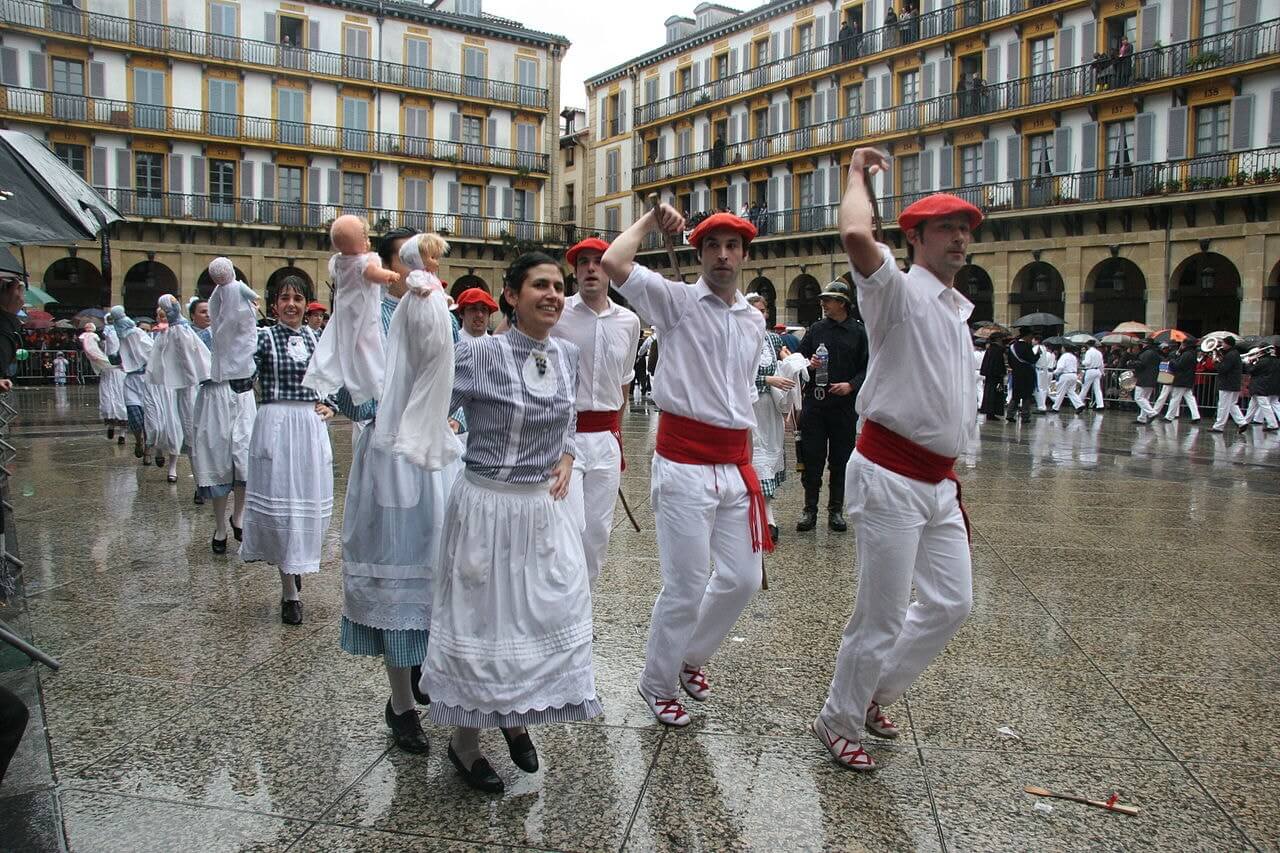We have so many languages in our voice translators. Over 70 as a matter of fact. It means that using Vasco devices allows you to understand or be understood by about 90% of the world population. From English, German and French to languages you’ve probably never heard of, like Basque language or Malayalam, Vasco language translators are designed to provide complete multilingual experience in all of them. Whether you want to use them all and speak like a local anywhere in the world or just start memorizing vocabulary with the Vasco language learning app, it’s always worth knowing something more about what we offer. In this story, we will focus on the Basque language. So grab your favourite cup with a warm beverage, sit comfortably and learn some interesting facts about one of the most interesting languages in the world.
FAQ:
What is the Basque language closest to?
Is Basque language the same as Spanish?
Is Basque language still spoken?
Is Basque a Gaelic language?
Are Irish related to Basques?
Is Basque a race or ethnicity?
Are Basque French or Spanish?
So, what language do the Basque speak? Let’s find out!
Table of Contents:
What is Basque language?
Have you ever visited Spain? It’s a lovely country, isn’t it? But did you know that Spain is home to more than one nationality? Let me tell you more. One of them is called in English “Basque”. These people are actually referred to as “Vasco” in Spanish — see the connection? People from País Vasco (Spanish for the Basque country) live in Northern Spain and Southern France and call themselves “euskaldunak”. They have their own tradition, architecture and even their own flag. See below:

They also want to have their own, sovereign country. They even have their own language. Yes, the Basque language or Vasco language, which will be the topic of our discussion here. But, what is Basque language? And, is Basque a language at all?
So, what language do the Basque speak? Its name is officially euskara. An interesting fact about Basque is that it is a language isolate. It means that no language in the world can be linked to it. What is more, the linguists have not been able to find out where the language comes from and how it ended up in Spain. The Basque country language is also the only remaining language isolate in Europe! However, later, the Vasco language borrowed some words from Romance languages.
There’s an interesting theory saying that Basque is the native language of people who first lived in Europe, even before the Celts and the Romans as well as before the Germanic and Slavic tribes. But that’s a digression! Let’s talk about the Basque language origin.
Basque language origin
To answer the question “what language do Basque speak”, we should focus on its origin. As we mentioned before, the official name of the Basque country language is euskara. In French, it’s usually called basque, but Spanish has several names for it: vasco, lengua vasca, or euskera. When it comes to geography, the Basque language is surrounded by Romance languages — it is, however, a language isolate, as we explained earlier on. So, what are the Basque language roots? How old is the Basque language? Let’s dive in and find out!
Let’s now focus on the origins of the Basque language. To fully answer the question of what language is spoken in País Vasco, we have to go back to Prehistoric Europe. It is very likely that an early version of the Vasco language was spoken in the area of present País Vasco before the arrival of the Indo-European languages in western Europe. It is interesting to note that authors such as Miguel de Unamuno pointed out the Basque country language word aizto (knife) is derived from haitz — which means stone. It can be an indication of the fact that this word dates to Prehistoric Europe, where tools and weapons were made of stone. Interesting, isn’t it?
Many attempts have been made to link the País Vasco language to other languages or find a Basque language family. It has been accepted that the Basque language is a non-Indo-European language, so much is true. Linguists, however, do not generally agree on the Basque language origin. So, where does the Basque language come from? There are several hypotheses, but most of them are controversial. It has been proposed that the Basque language roots can be, for instance, found in the Iberian language, which is an ancient dialect spoken in Iberian Peninsula during the ancient times. Other specialists claim that the Basque language family is among Northeast Caucasian languages, such as Chechen. Perhaps the only safe claim to make would be that Basque is the only non-Indo-European language currently spoken in Europe.
It is also difficult to specify the Basque language origin, because there isn’t much written material left. To fully answer the question “what language is Basque”, we have to rely on theories and hypotheses as well as on the Basque country language itself. We’ll have to closely examine Basque language phrases and words in addition to finding some Basque language translations. Let’s just say that a Basque language translation is also really hard to find… except for Vasco Translator M3, but that’s a different story.
What language is Basque most similar to?
If we cannot explicitly determine the Basque language origins, maybe let’s determine what language is the Vasco language most similar to. This is actually a very interesting question. There is no language as the Basque language. It is exactly what the language isolate means. However, judging from various Basque language phrases, the language currently spoken in País Vasco is very similar to Aquitanian language. But wait — what is Aquitanian language? It’s actually a very important part of the Basque language history. Let’s dive in for a while.
Aquitanian people or the Aquitani (Latin) was an ancient tribe that lived in the area of present-day southern Nouvelle-Aquitaine and southwestern Midi-Pyrénées in France during the times of the ancient Roman Empire. Below you can see the exact location of the Aquitanian people’s area:

It’s more or less the same as País Vasco, isn’t it? It wouldn’t be too shocking that their language, before it was transformed in the process of Romanization, is widely regarded as the Basque language predecessor.
Basque language influence
Can we find the Basque language examples in other languages? Well, it is not spoken anywhere outside País de Vasco, but the Vasco language itself was somewhat influential in the development of modern languages. For instance, it is said that some Spanish words have been derived from Basque. Examples of such include anchoa, bizarro, and cachorro.
What is more, the simple five-vowel system, which is widely used in many Romance and non-Romance languages, is said to have been derived from the Basque language. The Old Spanish merger of /v/ and /b/ consonants is also thought to be a Vasco language influence.
Learning Basque language
Want to learn some Basque language phrases? Let’s go over some Basque language examples. How to, for example, say home is Basque? Etxera. Country is herrialdea and translate is itzuli. When it comes to the syntax of the Basque language, it follows such a structure: subject–object–verb, which is different from, for instance, English, Spanish and French, where we have subject–verb–object. The syntax of the Vasco language can however be changed, depending on the thematic intentions.
How to say some basic phrases? What is this? can be translated as Zer da hau? and How are you? can be translated as Zelan zaude?. If you want to learn more Basque language phrases, it would be good to take advantage of Vasco Translator M3 as it includes that particular language among its impressive 70-language scope. Because what’s better than learning a language in a live conversation?
In a nutshell:
Basque is a language spoken in País Vasco, a region in Northern Spain and Southern France. The language is a language isolate, which means that no other language in the world is related to it. The origins of the language are unknown, but it is thought to be the language of the people who first lived in Europe. The Basque language is most similar to the Aquitanian language, which was spoken by an ancient tribe that lived in the same area as the Basques. The language has influenced other languages, such as Spanish and French. If you want to learn Basque, you can use the Vasco Translator M3, which includes the language among its 70-language scope.











